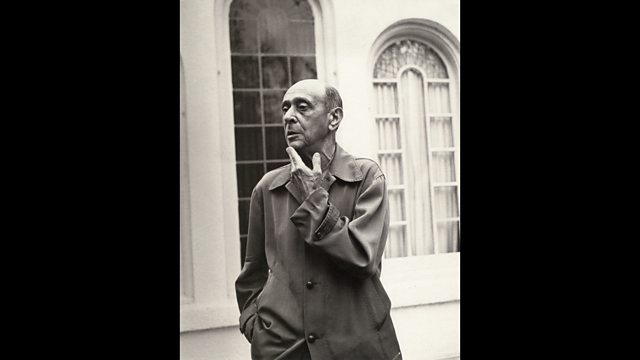The Listening Service Extra 11 of 12 - Twelve-tone music and its reception
We hear Schoenberg on the reception of his music in America, Europe.
We hear Schoenberg on the reception of his music in America, Europe.
'When in 1933 I came to America I was a very renowned composer, even so that Mr. Goebbels himself in his "Der Angriff" reprimanded me for leaving Germany. Thanks to the attitude of most American conductors and under the leadership of Toscanini, Koussevitzky, and of Walter, suppression of my works soon began with the effect that the number of my performances sunk to an extremely low point. A year ago I had counted in Europe alone about a hundred performances of my works.
There was also opposition and violent propoganda against my music in Europe. But musical education was high enough to meet the opposition of the illiterate. Therefore there existed a satisfactory number of first class musicians who at once were able to recognize that logic, order, and organization will be greatly promoted by application of the method of composing with twelve tones.' - Arnold Schoenberg, 1949
Archive audio and photos with kind permission of Arnold Schönberg Center, Wien
Featured in...
![]()
12 ways of listening to Schoenberg's journey to serial music—The Listening Service
The Listening Service meets the Second Viennese School.
Why do we call it 'classical' music?
Tom Service poses a very simple question (with a not-so-simple answer).
Six of the world's most extreme voices
From babies to Mongolian throat singers: whose voice is the most extreme of all?
How did the number 12 revolutionise music?
Why are we all addicted to bass?
Watch the animations
Join Tom Service on a musical journey through beginnings, repetition and bass lines.
When does noise become music?
We like to think we can separate “noise” from “music”, but is it that simple?
Podcast
-
![]()
The Listening Service
An odyssey through the musical universe, presented by Tom Service





